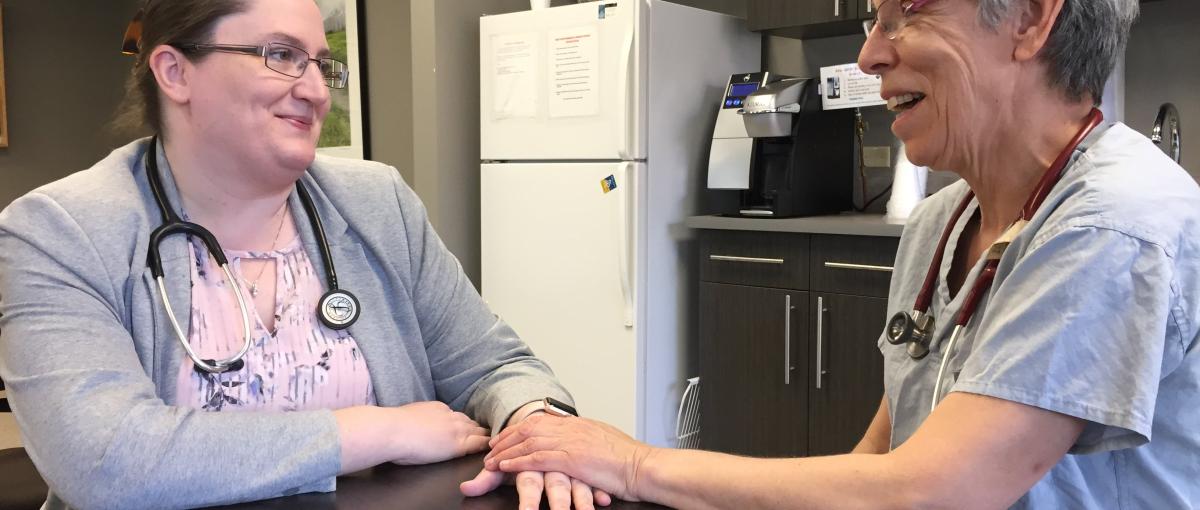Lending a listening ear
Physician peer support group to launch at the Grey Nuns Community Hospital

May 10, 2019
By Marguerite Watson, Senior Communications Advisor, Covenant Health
Physicians at the Grey Nuns Community Hospital in Edmonton will soon have a group of trained peer supporters to turn to when they need a listening ear.
"Physician wellness, particularly increasing rates of burnout and suicide, has been in the media a lot lately, and research shows that one of the most beneficial things for physicians is to talk to a peer and vent," says Dr. Jennine Wismark, President, Medical Staff Association at the hospital.
With help from Covenant Health's Sisters Legacy Fund, Jennine and other members of the Medical Staff Association have been working to develop a support group at the Grey Nuns over the last two years. The group will include up to 15 physicians from diverse departments who've been trained to provide active, supportive listening to their colleagues. They will use pamphlets, text messages and a central email to reach out to peers who, for various reasons, might be struggling.
"The best way I've heard this described is as a 'warm line.' It's not counselling. It's not psychological support. It's low-key, tea and biscuits and a shoulder to cry on," says Jennine.
The idea for developing the peer support group came from Dr. Sue Reid, Anesthesiologist and former Director of Well-Being for the Anesthesiology department at the Grey Nuns. She heard Dr. Jo Shapiro speak about the model physician peer support group she helped establish at Brigham and Women's Hospital in Boston at a physician health conference in 2017 and was inspired to create stronger community support at the Grey Nuns.
"The triggers for mental health issues in physicians can include things like a bad outcome with a patient, particularly being sued. You're always told, 'Don't discuss it with anyone,' and people can feel very alone. Traditionally, there’s been a culture of shame and blame,” says Sue.
Sue was also motivated to develop the group by her own experience of feeling overwhelmed at times by her work as an anesthesiologist. At one point, she sought help from the Alberta Medical Association's Physician and Family Support Program and her family doctor.
“I struggled with clinical depression. I think if I'd known there was something local, I could have called and talked, and I might have felt more able to cope," Sue says.
And though Sue hadn’t experienced a bad patient outcome, she knew colleagues who'd “beaten themselves up” over cases. “I think if they’d just had the opportunity to get it out, it would have helped,” she says.
There are thousands of personal stories like these, says Jennine. "I don't know of a physician who hasn’t had moments of burnout or who hasn’t had a friend or colleague die by suicide."
Depending on their specialty, doctors can still face stigma associated with needing support, says Sue. When something bad happens or a patient dies, they're expected to keep going, keep a stiff upper lip and not be seen as weak.
“And there’s this inherent training that physicians are here to help, not to be helped,” Jennine says.
Jennine and Sue hope the Grey Nuns peer support group will open the door to a wider conversation about physician wellness.
“Obviously, patients are our focus, but no one can be their best professional, compassionate physician self if they’re suffering. We have to provide the circumstances that enable people to bring their best selves to work,” says Sue.